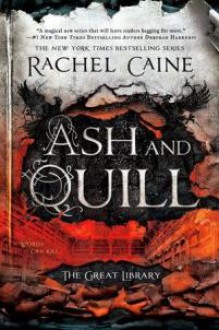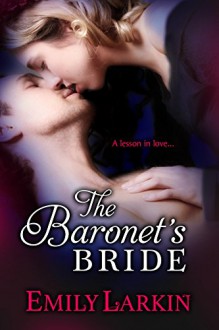
I thank Christina Boyd, the editor and also one of the authors of the collection, for sending me an invite to participate on the launch blog tour and for the ARC copy of the volume, which I freely chose to review. I have read and reviewed some of the other anthologies The Quill Collective has published and loved them, so I was delighted to be asked and to be able to participate. I’ve decided to talk a bit about each one of them, because they are all quite different in style (some written in the first person, some in the third, some quite humorous, some more serious, some set in the same time period as the original and others not, some shorter and some longer) but somehow manage to live up to the spirit and the wit of one of Austen’s best loved characters. Each story/novella is introduced by a quote from the original, which highlights an aspect later explored in more detail in the text, and it is also signposted by an individual cover, all of them beautiful. Foreword: Tessa Dare Witty, clever, and a very fitting introduction to the subject matter and to the stories. Mark Twain gets a mention! Resolution: Amy D’Orazio Set within the period of the novel, this short story plays on the ‘what if’. What would have happened if somebody close to Darcy had decided to take things in their hands? How would that have influenced the outcome? And what if Liz had finally succumbed to life’s harsh realities and forgotten her prejudices? An interesting turn of events and an amusing (but romantic) short story, aimed at readers familiar with the details of P&P. Thank God for alcoholic beverages and meddling maids! The House Party: Jenetta James I have read short and long fiction by Jenetta James and she delivers, once more, in this short-story/vignette, that moves forward the events to early XX century, in the setting of the Suffragist movement, and rewrites a memorable party and visit to the Bingley’s home. Wickham is up to his old tricks! A great story that could be read without previous knowledge of Austen’s novel, although it will be greatly enjoyed by fans of the original. Atmospheric Disturbances: Christina Morland This is, in a way, a Much Ado About Nothing situation, at least on the surface of it, when readers get to eavesdrop (well, and also get inside Elizabeth’s head) on an argument between Elizabeth and Darcy, after their engagement. For those of us who love the witty interactions between the two and the pull and push of their relationship, any opportunity to see them, and hear them, when they are in each other’s company is a pleasure, and so it is here, in a vignette that explores the dynamics of their relationship and we get to see a more vulnerable, but still reserved and proud, Darcy, and an Elizabeth prone to making a fuss, worrying, determined to know her future husband, and oh, so headstrong! Love in Limelight: Beau North North here transports the action to Hollywood in 1934. Elizabeth has become Eliza Bennett (her stage name) and she and Jenny are actresses, now in Hollywood. Charles Bingley is a film director, Darcy is, of course, the head of the studio, Pembley, and Georgina is Gigi, who was a child star and now is trying to move on to adult acting roles. There are misunderstandings and confusions at every turn, Wickham’s incarnation works extremely well, and I loved the use of expressions and language of the period, the bright and bubbly setting, the headlines and snippets of gossip news included in the story, and, well, everything. The Uncommonly Busy Lane to Longbourn: Joanna Starnes This short-story/novella reads like one of those movie outtakes included as a bonus in the luxury edition of a Blu-ray disc, or an alternative ending, where it is difficult to decide which one you prefer. It is set in the same time period as the original; the characters behave pretty much as we would expect them to, down to the long walks, the witty conversations, Elizabeth’s poor opinion of Darcy and her strong support of Wickham, but Darcy is a bit more forceful in his attempt at warning Elizabeth against the rogue and this sets in motion a chain of events that slightly alter things but do not derail the overall story where it matters. It also has pretty funny moments. It felt as if this story could have pretty well replaced what actually happens at that point in the original (no, I won’t go into details), and it would have fitted perfectly well. This could well have happened in an alternative P&P universe. Resistive Currents: Karen M Cox I am a fan of Cox’s writing, both her Austenesque stories and novels and also those that stride away from the Austen universe, and this short-story/novella delivers again. This is one of the stories in the collection that I think can be enjoyed by readers who have no particular knowledge of P&P, although Austen’s readers will get a kick out of it. Cox offers us two stories, of two women in the same family, separated by several generations (one a teacher in rural Colorado at the beginning of the XX century, the other her great-granddaughter, in the 1980s, a girl studying engineering at university, a profession still dominated by men) and how their own prejudice towards men whom they think don’t value them or see their worth because they are women causes them to misunderstand and misjudge them. I would have been happy to read a whole novel about these headstrong girls and their beaus, and I’m sure I won’t be alone in this. Something Like Regret: Elizabeth Adams The author explores in detail an episode that is a favourite of many of us who are fans of the BBC series. Yes, I am talking about Lizzy’s visit to Pembury with her aunt and uncle, and her surprise meeting with Darcy (Sorry, no wet shirt here). Adams allows us a peep into Elizabeth’s mind, and we follow her train of thought, her doubts, her regrets, and get to experience first-hand her gradual change of heart. Although this story would not work for those who don’t know P&P, it would easily fit into the novel, down to the direct addresses to her “reader”, and I am sure Austen would have approved. The Last Blind Date: Leigh Dreyer Elizabeth and Darcy are here transported to modern day Oklahoma. Elizabeth is a hardworking student who also waits tables, and Jane and Charlotte are her friends (although we only get snippets of it, their relationship is the stuff or chick lit and they are great together), and Darcy is a heir to a big oil company who has spent much of his life studying abroad. Neither of them are what the other expect at their blind date, and the reasons behind their behaviours are soon evident. One of the shorter stories that could be read independently from the original, particularly recommended to football fans. The Age of Nescience: J. Marie Croft This short-story/novella would again fit into what I’ve referred to as the outtakes of a Blu-ray, or an anniversary luxury edition of P&P with added materials. Here, we get an insight into Elizabeth’s past, her life and experiences before we meet her in P&P, from her first attendance at a ball (at the tender age of fifteen), to her visit to Pemberley, and this allows us to enjoy more of her family life, learn about her dreams as a young girl, her disappointments in love, her interactions with her mother, sisters, and especially her father (we experience both his wit but also his lack of backbone and his unwillingness to challenge his wife and daughters, all in the name of a quiet life), and like her, we gain a greater insight and understanding of how she came to be how she is and why this visit is so momentous for her. Again, a beautifully observed and written story (such attention to language!), and one Austen would have approved of, including the reference to the similarities of the characters and situations to those of Oliver Goldsmith’s The Vicar of Wakefield. A Mate for Life: Christina Boyd In this short-story/summary, we have an elderly Elizabeth talking to her granddaughter —who shares more than a few characteristics with her granny (she’s headstrong and obstinate as well)—and telling her about her love story with Fitzwilliam Darcy. Her granddaughter has found her own Mr Darcy (he’s proud and handsome as well), and the story seems to repeat itself, although thankfully it runs a bit smoother this time. The narration works beautifully as a summary and introduction to the original for those who might not have read it (I’d encourage them to consider reading this story first, perhaps), and although, but its own nature there’s a fair amount of telling, the interaction of Elizabeth with a woman of the new generation, Darcy’s imagined commentary, and the setting and freshness of the scene make this a delightful and perfect story to end the book with. I recommend the collection especially to lovers of Pride and Prejudice, although it is not necessary to be an expert in it (and some of the stories can be read independently from the original), and to those readers who enjoy thinking of what else could have happened or wonder what went on behind the scenes. The writing is superb and I am sure all the fans of the many writers taking part will enjoy the stories and will be happy to discover new writers with similar tastes and interests. I congratulate The Quill Collective and hope they’ll keep coming up with new ways to keep Austen and her characters alive.

 Log in with Facebook
Log in with Facebook 














